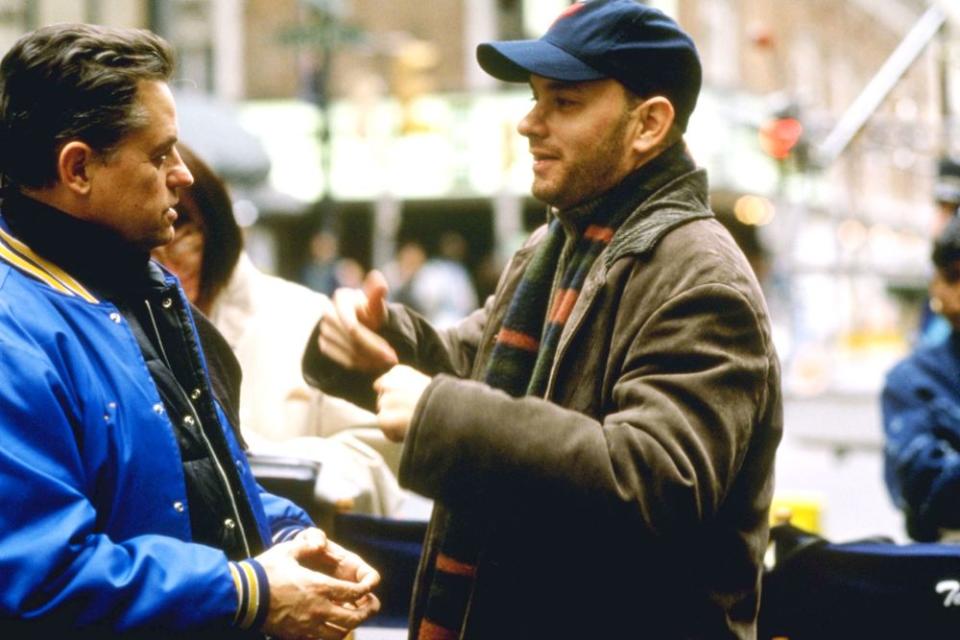Tom Hanks remembers the fearlessness of Philadelphia filmmaker Jonathan Demme
As 2017 draws to a close, Entertainment Weekly is remembering some of the talent we lost over the past year as part of our Late Greats series. Ahead, Tom Hanks shares memories of Oscar-winning filmmaker Jonathan Demme, the director of Philadelphia, The Silence of the Lambs, Beloved and Rachel Getting Married.
Here are Hank’s recollections, as told to EW’s Anthony Breznican ….
The thing about Jonathan was that he ran movies independent of all the pressures of making movies.
Making a movie with Jonathan was a lot more like getting together with cool friends and having the right kind of party, then having this time of excited make-believe.
It really did come from him and this desire for everybody to do good work and to get along and feel as though we were all a part of a great group and we were all equal cogs making the same movie. That’s unique. That was a spirit of … well, “relaxation” makes it seem as though no one was really working hard because everybody was. But everybody was invited into a process.
I took my wife out on one of our first dates it was to go see his Talking Heads concert film Stop Making Sense. I remember Something Wild was a fantastic movie, Married to the Mob, then of course Silence of the Lambs. I think I had been in the audience when Silence of the Lambs won best picture in 1992. But I had never met him. He was a mystery to me.
You weren’t getting a particular kind of genre with him. There wasn’t any such thing as a “Jonathan Demme movie,” per se. He was not just, “Hey, I’m a renegade and I break all the rules.” He would just say, “Look, if the rules are going to get in the way of us getting the coolest thing imaginable, then let’s ignore the rules.”
I think the boldest thing that he did, and this was again him breaking the rules, was Philadelphia was pretty much conceived despite the idea “nobody is going to pay to see a movie about this. You get AIDS and you die?” A lot of people are afraid of it, and they’re not going to want to go see a movie about a subject matter that’s too painful.

And yet he was able to convince the studio to put a lot of money into what is a mainstream studio movie that will compete in the marketplace against every action movie that’s out there or romantic comedy. He said, “Whatever. We’ll hold our own. We will actually be an investment from the craft/commercial point of view. You will make money.” That was bold.
Another example was casting the late Ron Vawter, an HIV-positive actor, as one of the partners in the law firm that fires my character. You get into the realm of insurance and stuff like that. But Jonathan wanted him, and he fought for him.
There were a lot of people in Philadelphia who had AIDS and they were scattered throughout. Some of them played people with AIDS and some of them played people who did not have AIDS. Ron Vawter was certainly the biggest part of that.
Without a doubt Jonathan was examining the concept of injustice in Philadelphia: Look past the issues and just look at the human being. I think the point of it all, and perhaps the nature of the way Jonathan worked was: don’t be afraid.
Don’t be afraid of this guy with AIDS. Don’t be afraid of this issue. Don’t be afraid of gay people. Don’t be afraid. To have a movie actually make money in the marketplace and be about something with the theme of “don’t be afraid,” again, that’s breaking rules, man.

